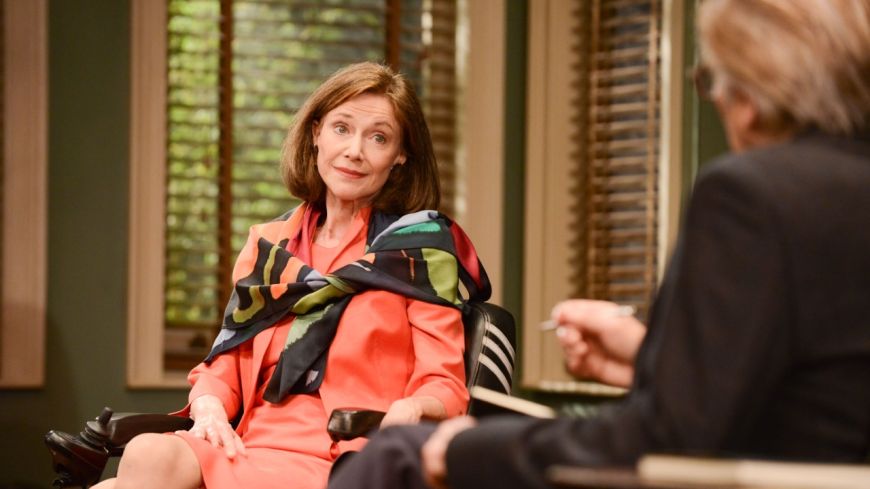
Exquisite violin music resonates around the King’s theatre as the audience take their seats. The stage is a tasteful office-living space full of light, old patterned furniture and an impressive music collection. The first to enter is psychiatrist Dr Feldmann, every inch the stereotype, complete with German accent and quiet demeanour. But Kempinski’s writing and Oliver Cotton’s performance deftly shake off any cheap comedic expectations one may harbour and delve into the difficulty and tragedy that go hand in hand with his profession.
His patient, Stephanie (Belinda Lang) has Multiple Sclerosis. Having once been a formidable and passionate violinist, her condition means that she can no longer play, and despite assuring the good doctor that she is fine, she is coping, she has things to do, it soon becomes painfully apparent that these are all denials of a heart breaking truth.
The template of psychiatrist and subject has been seen on stage many times, and with good reason. The relationship between psychiatric doctor and patient is a fascinating one; ultimately exposing and intimate, and sometimes dangerous. Duet for One succeeds at being both intense and ambrosially light hearted in the face of calamity. Stephanie is a fiery character played perfectly by Lang, and is often hilarious in retaliation to her misfortunes. Feldmann is her perfect harmony, with a surprising melody of his own that may well save her from herself.
The idea that suppression leads to disaster has been around since humans began to feel; expression has always been a natural animal instinct, and when we cannot or will not allow our natures to express themselves, things inevitably go wrong. When we look at history it appears in the notion of hysteria; when we look at modern culture we can even find the idea in Harry Potter with the fate of Ariana Dumbledore. Kempinski’s play is a much more real and local demonstration of the same concept; that when Stephanie’s outlet for her feelings, her music, is taken from her by her disease, it forms a clog in her emotional state that is destructive and very difficult to overcome.
Despite the somewhat static nature of the play, it is never dull. Although its title suggests a somewhat lonely conclusion, it is rather more uplifting than that. This duet is certainly made for two; there are harmonies and discords and plenty of dynamics. An elegant and weighty performance, and a stellar example of emotional tennis. As Dr Feldmann says, ‘It is a journey, Miss Abrahams. And we make it together.’
Runs until 4th November. £18-£31.50

